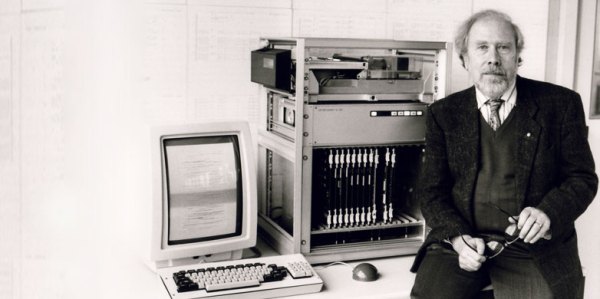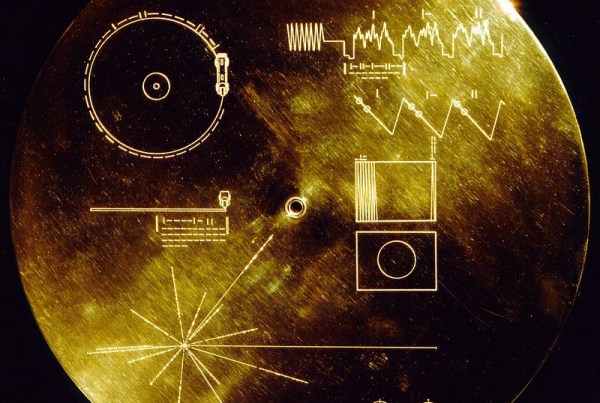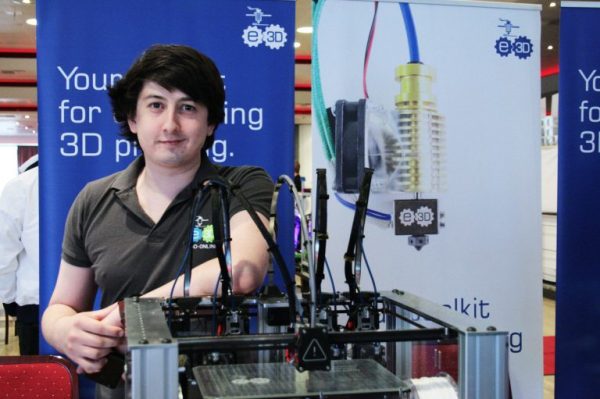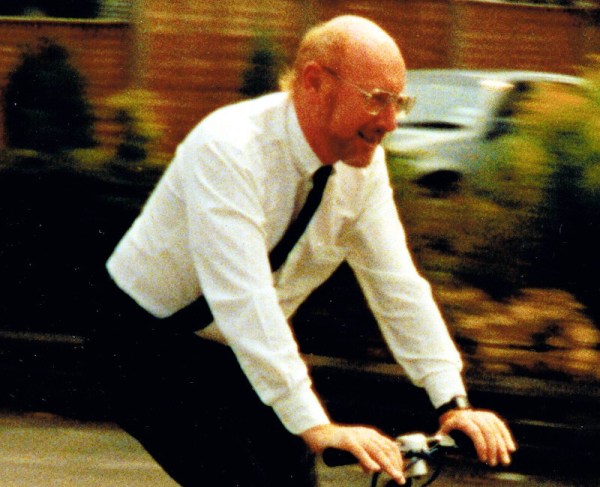We lost a true legend this week with the passing of NASA astronaut Jim Lovell at the ripe old age of 97. Lovell commanded the ill-fated Apollo 13 mission back in 1970, and along with crewmates Jack Swigert and Fred Haise — along with just about every person working at or for NASA — he managed to guide the mortally wounded Odyssey command module safely back home. While he’s rightly remembered for the heroics on 13, it was far from his first space rodeo. Lovell already had two Gemini missions under his belt before Apollo came along, including the grueling Gemini 7, where he and Frank Borman undertook the first long-duration space mission, proving that two men stuffed into a Volkswagen-sized cockpit could avoid killing each other for at least two weeks.
obituary15 Articles
Remembering Betty Webb: Bletchley Park & Pentagon Code Breaker
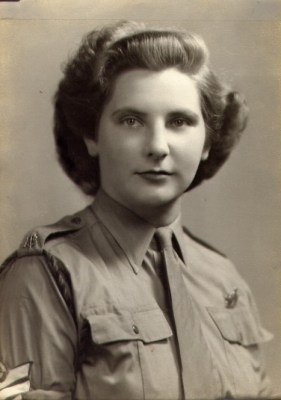
On 31 March of this year we had to bid farewell to Charlotte Elizabeth “Betty” Webb (née Vine-Stevens) at the age of 101. She was one of the cryptanalysts who worked at Bletchley Park during World War 2, as well as being one of the few women who worked at Bletchley Park in this role. At the time existing societal biases held that women were not interested in ‘intellectual work’, but as manpower was short due to wartime mobilization, more and more women found themselves working at places like Bletchley Park in a wide variety of roles, shattering these preconceived notions.
Betty Webb had originally signed up with the Auxiliary Territorial Service (ATS), with her reasoning per a 2012 interview being that she and a couple of like-minded students felt that they ought to be serving their country, ‘rather than just making sausage rolls’. After volunteering for the ATS, she found herself being interviewed at Bletchley Park in 1941. This interview resulted in a years-long career that saw her working on German and Japanese encrypted communications, all of which had to be kept secret from then 18-year old Betty’s parents.
Until secrecy was lifted, all her environment knew was that she was a ‘secretary’ at Bletchley Park. Instead, she was fighting on the frontlines of cryptanalysis, an act which got acknowledged by both the UK and French governments years later.
Continue reading “Remembering Betty Webb: Bletchley Park & Pentagon Code Breaker”
RIP Lynn Conway, Whose Work Gave Us VLSI And Much More
Lynn Conway, American engineer and computer scientist, passed away at the age of 86 from a heart condition on June 9th, at her Michigan home. Her work in the 1970s led to the integrated circuit design and manufacturing methodology known as Very Large Scale Integration, or VLSI, something which touches almost all facets of the world we live in here in 2024.
It was her work at the legendary Xerox PARC that resulted in VLSI, and its subsequent publication had the effect through the 1980s of creating a revolution in the semiconductor industry. By rendering an IC into a library of modular units that could be positioned algorithmically, VLSI enabled much more efficient use of space on the die, and changed the design process from one of layout into one of design. In simple terms, by laying out pre-defined assemblies with a computer rather than individual components by hand, a far greater density of components could be achieved, and more powerful circuits could be produced.
You may have also heard of Lynne Conway, not because of her VLSI work, but because as a transgender woman she found herself pursuing a parallel career as an activist in her later decades. As an MIT student in the 1950s she had tried to transition but been beaten back by the attitudes of the time, before dropping out and only returning to Columbia University to finish her degree a few years later in the early 1960s. A job at IBM followed, but when she announced her intent to transition she was fired from IBM and lost access to her family. Continue reading “RIP Lynn Conway, Whose Work Gave Us VLSI And Much More”
Remembering Niklaus Wirth: Father Of Pascal And Inspiration To Many
Although perhaps not as much of a household name as other pioneers of last century’s rapid evolution of computer hardware and the software running on them, Niklaus Wirth’s contributions puts him right along with other giants. Being a very familiar face both in his native Switzerland at the ETH Zurich university – as well as at Stanford and other locations around the world where computer history was written – Niklaus not only gave us Pascal and Modula-2, but also inspired countless other languages as well as their developers.
Sadly, Niklaus Wirth passed away on January 1st, 2024, at the age of 89. Until his death, he continued to work on the Oberon programming language, as well as its associated operating system: Oberon System and the multi-process, SMP-capable A2 (Bluebottle) operating system that runs natively on x86, X86_64 and ARM hardware. Leaving behind a legacy that stretches from the 1960s to today, it’s hard to think of any aspect of modern computing that wasn’t in some way influenced or directly improved by Niklaus.
Continue reading “Remembering Niklaus Wirth: Father Of Pascal And Inspiration To Many”
Frank Drake’s Legacy, Or: Are We All Alone In The Universe?
When Frank Drake began his astronomy career in the late 1950s, this was an incredibly exciting time for the field. Humanity was beginning to unlock the secrets of the Universe using ever more powerful radio frequency and optical telescopes, including the tantalizing prospect of space-based telescopes. Amidst the ramping up Space Race between the US and USSR, there was an ever-growing excitement about humankind’s future among the stars.
As concrete plans for landings and colonies on the Moon, Venus and Mars were proposed and put into action, it also brought to the forefront many existing and new questions about humanity’s place in the Universe. During Frank Drake’s 92 years on planet Earth – until his passing on September 2nd of this year – he was one of the driving forces behind the search for extraterrestrial intelligence (SETI), along with other legends like Carl Sagan.
Although to the average person the acronym SETI is most likely to bring to mind popcorn movies about little grey – or green – men, Drake’s Project Ozma, as well as the SETI Institution and the ongoing Breakthrough Listen project are just some of the attempts made by Drake and his colleagues over the decades to answer that one question that may affect the very course of humankind’s future: are we alone in the Universe?
Continue reading “Frank Drake’s Legacy, Or: Are We All Alone In The Universe?”
Remembering Sanjay Mortimer, Pioneer And Visionary In 3D Printing
Over the weekend, Sanjay Mortimer passed away. This is a tremendous blow to the many people who he touched directly and indirectly throughout his life. We will remember Sanjay as pioneer, hacker, and beloved spokesperson for the 3D printing community.
If you’ve dabbled in 3D printing, you might recall Sanjay as the charismatic director and co-founder of the extrusion company E3D. He was always brimming with enthusiasm to showcase something that he and his company had been developing to push 3D printing further and further. But he was also thoughtful and a friend to many in the community.
Let’s talk about some of his footprints.
Continue reading “Remembering Sanjay Mortimer, Pioneer And Visionary In 3D Printing”
Farewell Sir Clive Sinclair; Inspired A Generation Of Engineers
It is with sadness that we note the passing of the British writer, engineer, home computer pioneer, and entrepreneur, Sir Clive Sinclair, who died this morning at the age of 81 after a long illness. He is perhaps best known among Hackaday readers for his ZX series of home computers from the 1980s, but over a lifetime in the technology industry there are few corners of consumer electronics that he did not touch in some way.
Sinclair’s first career in the 1950s was as a technical journalist and writer, before founding the electronics company Sinclair Radionics in the 1960s. His output in those early years was a mixture of miniature transistor radios and Hi-Fi components, setting the tone for decades of further tiny devices including an early LED digital watch at the beginning of the 1970s, miniature CRT TVs in the ’70s and ’80s, and another tiny in-ear FM radio which went on sale in the ’90s.
Continue reading “Farewell Sir Clive Sinclair; Inspired A Generation Of Engineers”




